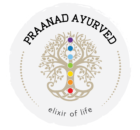The traditional Indian medical system known as Ayurveda places a strong emphasis on the value of a healthy, balanced diet. The appropriate amount of food is necessary for keeping a healthy body and mind, according to Ayurveda. According to Ayurveda, an individual’s recommended food intake varies depending on their age, body type, digestive health, and degree of daily activity. Here’s a deeper look at what Ayurveda says about how much food to eat.
Understanding Digestive Strength
The digestive fire, or Agni, is regarded in Ayurveda as being the secret of good health. How well the body can break down food and get the vital nutrients depends on Agni’s strength. Strong, moderate, and weak digestive strength, or Agni, are the three categories recognised by Ayurveda. Agni’s power is influenced by a number of variables, including genetics, age, nutrition, and lifestyle.
Individuals with strong Agni can digest food fast and effectively, but those with weak or moderate Agni may struggle with gastrointestinal problems including indigestion, constipation, or bloating. According to Ayurveda, individuals with strong Agni should eat more food, while those with moderate or weak Agni should consume less food and watch their portions.
Choosing Food for Your Body Type
The Vata, Pitta, and Kapha doshas are the three energy kinds according to Ayurveda that make up the human body. Each dosha has an own set of traits and needs a certain diet to be in balance. According to Ayurveda, eating habits should be based on one’s dosha in order to support overall health and wellbeing.
Vata persons should consume warm, nutritious foods to maintain their energy levels because they tend to be lean and have a quick metabolism. Pitta folks should consume cooling, relaxing foods to balance their fiery temperament. They are often of medium build, with a powerful digestive fire. In order to speed up their digestion, kapha people should consume light, warm foods because they often have slower metabolisms and are heavier built.
Food intake based on daily activity
Ayurveda acknowledges that a person’s daily activity level affects how much food they should eat. Individuals who have sedentary lifestyles need less food to sustain their energy levels than those who routinely participate in physical labor or exercise.
The greatest meal should be had at lunchtime when the digestive fire is at its peak, according to Ayurveda. To encourage healthy digestion, dinner should be lighter and eaten at least three hours before bed.
Conclusion
The appropriate food intake in Ayurveda is based on a number of variables, including digestive capacity, body type, and degree of daily activity. The need of a balanced diet is emphasized by Ayurveda in order to preserve excellent health and wellbeing. People may pick meals that are suitable for their dosha, encourage healthy digestion, and supply the essential nutrients for optimum health by according to Ayurveda principles.

